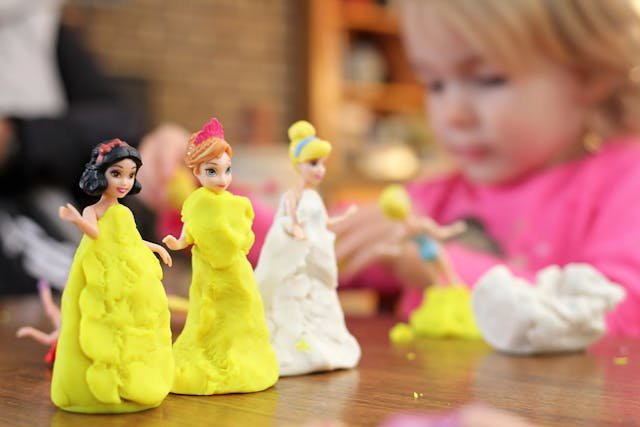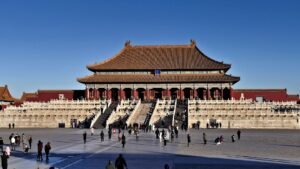

Understanding Norwegian Kindergarten System: A Crucial Component for Citizenship Test Preparation
Table of Contents
ToggleIntroduction
For those seeking Norwegian citizenship, understanding the country’s educational system, particularly the kindergarten (barnehage) structure, is a crucial aspect of preparing for the citizenship test. This article explores the Norwegian kindergarten system in depth, highlighting its importance not only for child development but also as a key topic for the citizenship test.
The NLS Norwegian Language School offers a comprehensive citizenship preparation course that covers this and other essential topics. For more information, visit: https://nlsnorwegian.no/prepare-for-the-norwegian-test-citizenship-test/
The Significance of Kindergarten in Norwegian Society
Understanding the role and importance of kindergartens in Norway is crucial for anyone preparing for the citizenship test. The Norwegian society places high value on early childhood education, and this is reflected in the comprehensive kindergarten system.
Key Benefits of Kindergarten
Kindergartens in Norway serve multiple purposes, all of which contribute to the holistic development of children:
- Social Interaction: One of the primary benefits of kindergarten is that children gain experience in being with other children. This aspect of kindergarten helps in developing crucial social skills from an early age, which is highly valued in Norwegian society.
- Empathy and Consideration: In kindergarten, children learn to take others into account. This fosters empathy and social awareness, which are important values in Norwegian culture.
- Independence: The kindergarten environment helps children become more self-reliant and independent. This aligns with the Norwegian emphasis on individual autonomy from an early age.
- Knowledge Acquisition: Children in kindergarten learn a wide range of factual knowledge. This early exposure to learning sets the foundation for future academic success.
- School Readiness: The kindergarten experience prepares children for the transition to formal schooling. This preparatory role is crucial in the Norwegian education system.
Understanding these benefits and their importance in Norwegian society is essential for the citizenship test, as it reflects the country’s values and priorities in child development and education.
Regulatory Framework
A key point to remember for the citizenship test is that all activities in Norwegian kindergartens are planned based on the Kindergarten Act (Barnehageloven) and other regulations set by the authorities. This ensures a standardized, high-quality approach to early childhood education across the country.
The Kindergarten Act is a crucial piece of legislation that citizenship applicants should be familiar with. It outlines the purpose, content, and values of kindergartens in Norway. Key points from this act that may be relevant for the citizenship test include:
- The purpose of kindergartens in promoting learning and formation
- The emphasis on care, play, learning, and formation as foundations for all-round development
- The focus on children’s need for care and play, and promotion of learning and formation as bases for all-round development
- The importance of promoting democracy and equality and counteracting all forms of discrimination
Core Values and Principles
The Kindergarten Act stipulates that kindergartens should be built on fundamental values from Christian and humanistic traditions while being rooted in human rights. These values include:
- Compassion (nestekjærlighet)
- Forgiveness (tilgivelse)
- Equality (likeverd)
- Solidarity (solidaritet)
It’s important to note, especially for the citizenship test, that while these values have roots in Christian and humanistic traditions, they are common to most religions and life philosophies. This makes the kindergarten system inclusive and respectful of diverse backgrounds, reflecting Norway’s commitment to multiculturalism and religious freedom.
Promoting Democracy and Equality
A crucial aspect of the Norwegian kindergarten system, and an important point for the citizenship test, is the mandate to promote democracy and gender equality while combating all forms of discrimination. This early introduction to these principles helps shape children into responsible, tolerant citizens, which is a key goal of the Norwegian education system.
Citizenship test takers should understand that this focus on democracy and equality in kindergartens reflects broader Norwegian societal values. It demonstrates the country’s commitment to fostering these principles from the earliest stages of education.
Parental Collaboration
The Norwegian kindergarten system places a strong emphasis on collaboration with parents. This aspect of the system may be covered in the citizenship test as it reflects the Norwegian approach to community involvement in education. Key points include:
- Information Sharing: Parents receive regular information about the goals and activities planned for their children. This transparency is a hallmark of the Norwegian education system.
- Parent Meetings: Regular meetings are organized where parents can get to know each other and discuss the challenges and joys of raising young children. These meetings foster a sense of community among parents.
- Individual Parent-Teacher Conferences: These provide opportunities for more personalized discussions about a child’s progress and needs. This individualized approach reflects the Norwegian emphasis on tailored education.
- Language Support: An important point for citizenship test takers is that parents who don’t speak Norwegian have the right to bring an interpreter to parent meetings. This policy reflects Norway’s commitment to inclusion and equal participation for all residents, regardless of their language background.
Financial Aspects
Understanding the financial structure of kindergartens in Norway is important for the citizenship test as it reflects the country’s approach to social welfare and education. Key points include:
- Shared Costs: Running kindergartens is expensive, but the cost is shared between the municipality and parents. This shared responsibility approach is common in Norwegian social services.
- Municipal Contribution: The municipality covers a large portion of the cost. This significant public investment in early childhood education demonstrates its importance in Norwegian society.
- Parental Fees: Parents pay the remaining portion, with the amount varying by municipality. However, it’s important to note for the citizenship test that there is a maximum price cap set by the Norwegian Parliament (Storting) to ensure affordability.
- Fee Reductions: Some municipalities offer reduced fees for low-income families or families with multiple children in kindergarten. While policies vary, this approach reflects Norway’s commitment to equal opportunities in education.
Understanding these financial aspects is crucial for the citizenship test as it demonstrates knowledge of how Norway balances public and private responsibilities in providing essential services like education.
The Role of Kindergarten in Integration
For those preparing for the citizenship test, it’s important to understand the role kindergartens play in integration. In an increasingly diverse Norway, kindergartens serve as important arenas for cultural exchange and language learning.
- Language Development: For children from immigrant backgrounds, kindergartens provide an immersive environment for learning Norwegian. This early language exposure is crucial for future academic success and social integration.
- Cultural Exchange: Kindergartens often celebrate various cultural traditions, helping all children develop an appreciation for diversity from an early age.
- Parent Integration: Through parent meetings and activities, kindergartens also play a role in helping immigrant parents integrate into Norwegian society.
Understanding this integrative role of kindergartens is important for the citizenship test as it reflects Norway’s approach to managing diversity and promoting inclusion.
Kindergarten and Norwegian Values
The citizenship test often includes questions about Norwegian values and how they are reflected in various aspects of society. The kindergarten system is a prime example of how these values are put into practice:
- Equality: The universal access to kindergarten, regardless of socio-economic background, reflects Norway’s commitment to equality.
- Democracy: Even in kindergarten, children are encouraged to express their opinions and participate in decision-making processes, fostering an early understanding of democratic principles.
- Outdoor Life (Friluftsliv): Many Norwegian kindergartens emphasize outdoor play and learning, reflecting the cultural importance of connecting with nature.
- Independence: The focus on developing children’s independence aligns with the Norwegian value of individual autonomy.
- Cooperation: Group activities and play in kindergarten foster a sense of cooperation and community, important values in Norwegian society.
For the citizenship test, understanding how these values are integrated into the kindergarten system can provide valuable insights into Norwegian culture and society.
Historical Context
To fully appreciate the Norwegian kindergarten system for the citizenship test, it’s helpful to understand its historical development:
- Early Beginnings: The first kindergartens in Norway were established in the mid-19th century, initially as charitable institutions for poor children.
- Post-War Development: After World War II, as more women entered the workforce, the demand for childcare increased, leading to the expansion of kindergartens.
- 1975 Kindergarten Act: This landmark legislation established kindergartens as educational institutions, not just childcare facilities.
- Universal Access: In recent decades, Norway has moved towards providing universal access to kindergarten, reflecting its importance in society.
This historical perspective may be relevant for the citizenship test as it shows how the kindergarten system has evolved alongside Norwegian society.
Comparison with Other Countries
For those preparing for the citizenship test, it can be helpful to understand how Norway’s kindergarten system compares to those in other countries:
- Start Age: In Norway, children typically start kindergarten at age 1, earlier than in many other countries.
- Pedagogical Approach: Norwegian kindergartens often use a play-based learning approach, which may differ from more structured preschool programs in other countries.
- Outdoor Focus: The emphasis on outdoor play and learning is particularly strong in Norwegian kindergartens.
- Staff Qualifications: Norway has high requirements for kindergarten staff qualifications, with many teachers holding bachelor’s degrees in early childhood education.
Understanding these unique aspects of the Norwegian system can help citizenship test takers appreciate the country’s approach to early childhood education.
Challenges and Debates
Being aware of current challenges and debates in the Norwegian kindergarten system can be beneficial for the citizenship test, as it demonstrates an understanding of contemporary issues in Norwegian society:
- Staff Shortages: There’s an ongoing discussion about the need for more qualified kindergarten teachers.
- Quality Assurance: Ensuring consistent quality across all kindergartens is a topic of debate.
- Cultural Sensitivity: As Norway becomes more diverse, there are discussions about how to best accommodate children from various cultural backgrounds.
- Digital Learning: The role of technology in early childhood education is an emerging topic of debate.
Understanding these debates shows an engagement with current Norwegian social issues, which can be valuable for the citizenship test.
Conclusion
Understanding the Norwegian kindergarten system is crucial for those preparing for the citizenship test. It provides insights into Norwegian values, social structures, and approaches to education and child development. The kindergarten system reflects many core aspects of Norwegian society, including equality, democracy, and the importance of early education.
For comprehensive preparation for the Norwegian citizenship test, including detailed information about the kindergarten system and other crucial topics, the NLS Norwegian Language School offers an invaluable citizenship preparation course. This course covers all aspects of Norwegian society and culture that are relevant to the citizenship test.
For more information and to enroll in the citizenship preparation course, visit: https://nlsnorwegian.no/prepare-for-the-norwegian-test-citizenship-test/
By gaining a deep understanding of the Norwegian kindergarten system and its place in society, citizenship applicants can demonstrate their knowledge of and commitment to Norwegian values and social structures, enhancing their preparation for the citizenship test and their integration into Norwegian society.
If you want to learn Norwegian, you can register for classes here. We look forward to hearing from you and helping you become fluent in Norwegian.





